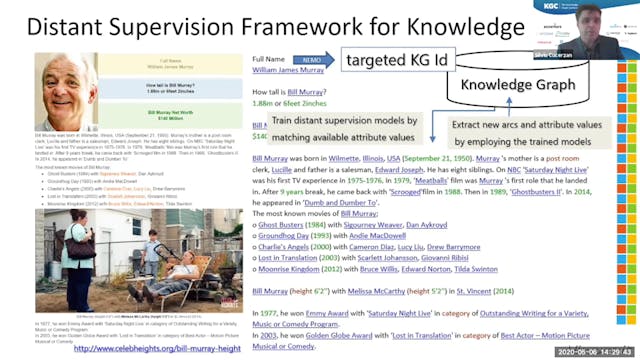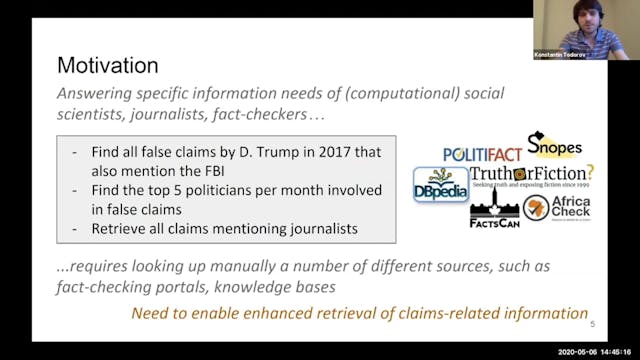Inventory Management using Knowledge Graphs
Knowledge Graph Conference 2020
•
20m
Predictive analytics in inventory management has not been the traditional domain of knowledge graphs and semantics; however, it is a surprisingly natural fit. This talk will review knowledge graphs in the supply chain and look into the details of implementation. In our central case, using a semantic model, we build a ‘digital twin’ of a complex inventory management supply chain. Data from heterogeneous sources - including warehouse management systems, point of sale systems and weather data – are then imported into the knowledge graph. Using the graph we carry out analytics, optimization, scheduling and Monte Carlo simulations. A complex set of operations built around the central supply chain knowledge graph. The net result is a predictive analytic system that delivers real value to the enterprise (up to a 50% reduction in inventory). The knowledge graph can be extended to include product information and other central commercial data use cases. This presentation will draw on the production delivery of TerminusDB to the largest retailer in Ireland.
Up Next in Knowledge Graph Conference 2020
-
A Data Catalog Should be Your Organiz...
In this presentation, we'll cover why a data catalog is the first knowledge graph that an organization should build. Most organizations don't have a clear picture of their data assets and how they're being used - a data datalog helps provide that picture and unlock the value of data. We'll explor...
-
Entity Linking | The Symbiosis betwee...
The development and availability of Web knowledge repositories, in particular Wikipedia, as the largest general-knowledge encyclopedic collection, have changed remarkably not only the way in which individual users fulfill their informational needs but also the way in which information providers o...
-
A Knowledge Graph of Controversial Cl...
Expressing opinions and interacting with others on the Web has led to the production of an abundance of online discourse data, such as claims and viewpoints on controversial topics, their sources and contexts (e.g., events, entities). These data constitute a valuable source of insights for studie...



